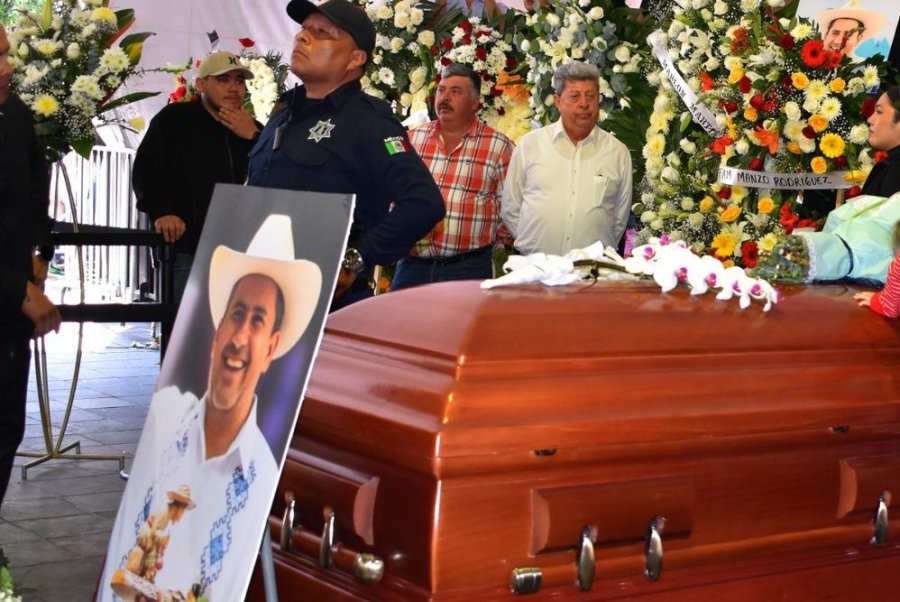Nov. 3 (UPI) — Thousands of people took to the streets of Morelia and other municipalities to demand justice after the killing of Carlos Manzo, mayor of Uruapan, Michoacán, who was shot to during a public event celebrating the Day of the Dead.
The crime, carried out in downtown Uruapan during peak hours, sparked local outrage and a nationwide outcry against impunity. Demonstrators chanted slogans against the ruling Morena party and accused the government of “surrendering the state to organized crime.”
Hundreds of people dressed in black marched Sunday through the streets of Uruapan, accompanying the slain mayor’s funeral procession and chanting slogans such as “Justice! Justice! Out with Morena!”
Meanwhile, in the state capital, Morelia, protesters stormed the Michoacán Government Palace, broke furniture and painted slogans on the walls demanding an effective response to the political violence plaguing the state.
The attack made Manzo the seventh mayor killed in Michoacán since Alfredo Ramírez Bedolla took office as governor in 2021.
Uruapan, an agricultural city in western Mexico, lies in one of the country’s most violent regions, where criminal groups fight over drug-trafficking and extortion routes despite a federal security presence. Homicides in the area have already surpassed 860 this year.
According to witnesses, an armed man approached the stage where the mayor was inaugurating the Festival of Candles and shot him at close range. One of the attackers was killed at the scene and two others were arrested.
Uruapan is the heart of Michoacán’s “green gold” industry, with the largest municipal area devoted to avocado cultivation, about 40,000 acres. It is among the leading municipalities in a state that produces more than 2 million tons of avocados on roughly 450,000 acres, dominating Mexico’s national supply.
Michoacán has long been the only Mexican state authorized by the U.S. Department of Agriculture to export avocados to the American market.
The avocado industry generates about 300,000 jobs and brings in nearly $3.5 billion a year in exports. At the same time, Michoacán led Mexico in lemon production in 2024, harvesting 398,000 tons in the first half of the year.
That economic weight helps explain the scale of the protests. Demonstrators are demanding greater security in orchards, packing facilities and along transport routes, an end to extortion, and guarantees to prevent disruptions to harvests, exports and U.S.-Mexican inspections after recent violence disrupted the supply chain.
Federal authorities attributed the killing to disputes among organized crime groups.
The mayor acknowledged that he had received threats and that his vehicle was not armored in an interview with El País, which accompanied him on a patrol months earlier.
He said he had repeatedly asked the federal government for support to reinforce his security and to purchase armored vehicles, but his requests went unanswered.
In recent interviews, Manzo said, “I don’t want to be another name on the list of the executed,” and insisted he had no ties to any criminal group. He said his strategy of live-streaming patrols and raids was meant to deter potential attackers.
After the attack, President Claudia Sheinbaum condemned the killing and vowed there would be “no impunity.” In a message on social media, she said the mayor had federal protection and that the government would strengthen its security strategy in Michoacán.
Some protesters called for her resignation over the lack of protection for Manzo.
The state government faces strong criticism over violence targeting local officials. Since 2021, in addition to the seven mayors killed, five others have been attacked and one remains missing.
During Manzo’s funeral, mourners booed the governor, reflecting public frustration over the lack of progress on security.

